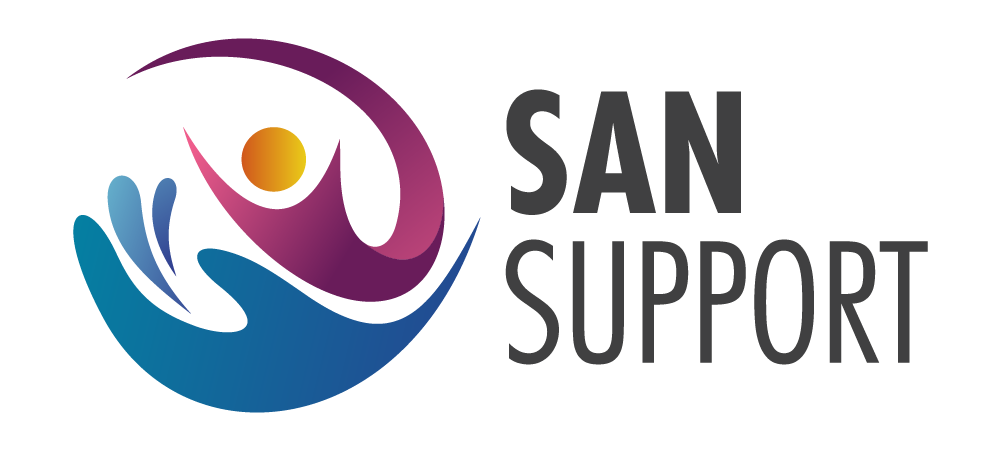
Every 21 June, the world observes Motor Neurone Disease Global Day a day to raise awareness, promote compassion and advocate for the rights and dignity of people living with Motor Neurone Disease (MND).
In Australia, MND Global Day brings attention to a condition that affects thousands of individuals and their families. It reminds us of the importance of community understanding, inclusive disability support and access to life-changing services such as the National Disability Insurance Scheme (NDIS).
Whether you are living with MND, caring for someone who is or working in disability support, this day encourages everyone to stand together for visibility, equity and action.
What Is Motor Neurone Disease?
Motor Neurone Disease (MND) also known globally as ALS is a progressive neurological condition that affects the nerves responsible for muscle movement. Over time, MND weakens the muscles used for walking, speaking, swallowing and breathing.
Key Facts About MND in Australia:
- Over 2,000 Australians live with MND at any given time
- It is usually diagnosed in people over the age of 40
- Cognitive function is often preserved, even as physical ability declines
- There is currently no cure, but early support can improve quality of life
- Symptoms and progression rates vary from person to person
Raising awareness through MND Global Day helps reduce stigma, increase funding and improve the lives of those affected.
Why MND Global Day Matters
This day goes far beyond symbolic gestures. MND Global Day plays a vital role in increasing public understanding and influencing meaningful change in disability care and research.
The Day Aims To:
- Educate Australians about the signs, symptoms and realities of MND
- Highlight the importance of early diagnosis and intervention
- Promote funding for research and assistive technology development
- Encourage inclusive, person-centred disability care
- Celebrate the resilience of people living with MND and their carers
By supporting MND Global Day, we make visible a condition that is often misunderstood and we build a more informed, compassionate Australia.
Living with MND: The Role of Inclusive Disability Support
Living with MND presents complex and evolving challenges. However, with the right disability supports in place, people can retain independence, stay connected and maintain dignity for as long as possible.
Disability Support Services Can Provide:
- In-Home Personal Care – Assistance with daily living tasks such as showering, dressing and eating
- Assistive Technology for MND – Including communication aids, powered wheelchairs and environmental controls
- Allied Health Services – Physiotherapy, occupational therapy and speech therapy tailored to MND-specific needs
- Mobility and Home Modifications – Accessible ramps, hoists and bathroom alterations
- Emotional and Mental Health Support – Counselling and behavioural therapy for participants and carers
Support must be flexible, responsive and compassionate, as the condition can change quickly. This is where NDIS funding plays a crucial role.
How the NDIS Supports Australians with MND
The National Disability Insurance Scheme (NDIS) offers crucial funding for people under 65 who have been diagnosed with Motor Neurone Disease. Because MND is progressive, NDIS plans must be adaptable and regularly reviewed to ensure they meet the participant’s evolving needs.
Common NDIS Supports for MND Include:
- Core Supports – Personal care, meal preparation, transport
- Assistive Technology – Communication devices, electric wheelchairs, adaptive tools
- Capacity Building – Allied health therapies, plan management, social engagement programs
- Support Coordination – Guidance for families navigating the system and adjusting plans
- Respite and Short-Term Accommodation – Giving carers necessary breaks
Through proper planning and informed service delivery, the NDIS empowers people with MND to maintain autonomy and improve quality of life.
How to Get Involved on MND Global Day
You do not have to be a specialist to make a difference. Anyone can participate in MND Global Day by spreading awareness, supporting advocacy efforts and uplifting the voices of those affected.
Ways to Show Your Support:
- Wear a blue cornflower – The global symbol of MND awareness
- Share facts or personal stories on social media using hashtags like #MNDawareness or #MNDGlobalDay
- Donate to organisations like MND Australia or your local MND foundation
- Host a fundraiser or awareness event in your community or workplace
- Encourage inclusive policies and accessible support within your networks
These small actions, when multiplied, can drive big change both in public understanding and in the quality of support available across Australia.
How SAN Support Stands Beside Australians Living with MND
At SAN Support, we provide flexible, compassionate and inclusive disability support services for Australians living with Motor Neurone Disease. As a registered NDIS provider, we work closely with participants and families to ensure their care plans meet current needs and are ready to adapt as circumstances change.
Our MND-Focused Supports Include:
- In-Home Care Services for daily tasks and personal wellbeing
- Support Coordination to manage and update your NDIS plan
- Therapy Referrals for speech, physiotherapy and occupational therapy
- Assistive Technology Planning to ensure access to the right tools at the right time
- Community Participation Programs that help maintain social connection and routine
We believe that support should do more than meet a need it should enhance quality of life, build confidence and honour the individual behind the diagnosis.
Final Thoughts
Motor Neurone Disease Global Day is not just a day to wear blue it is a chance to listen, understand and act. Every Australian living with MND deserves access to timely, person-centred support that evolves with them. By promoting awareness, embracing inclusive care models and supporting access to NDIS services, we move closer to that goal.
Let this day be a reminder: with compassion and commitment, we can make a meaningful difference.
